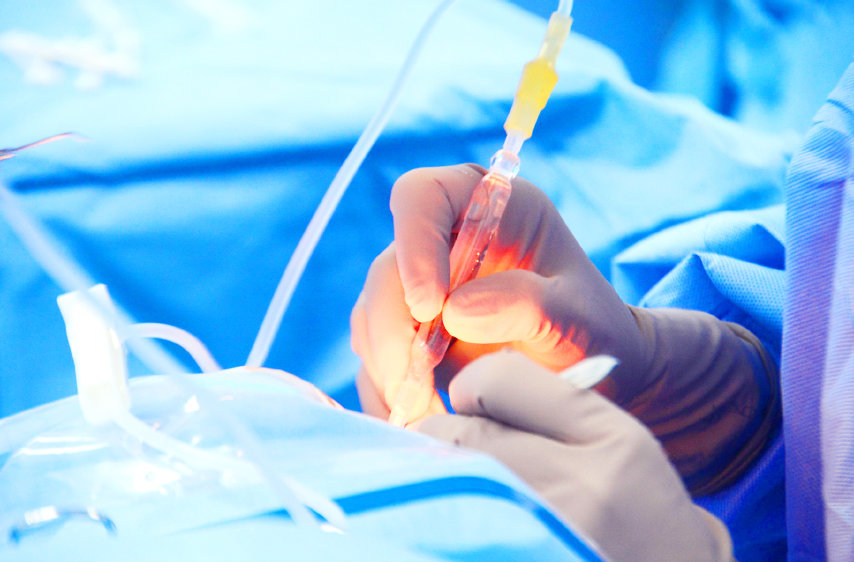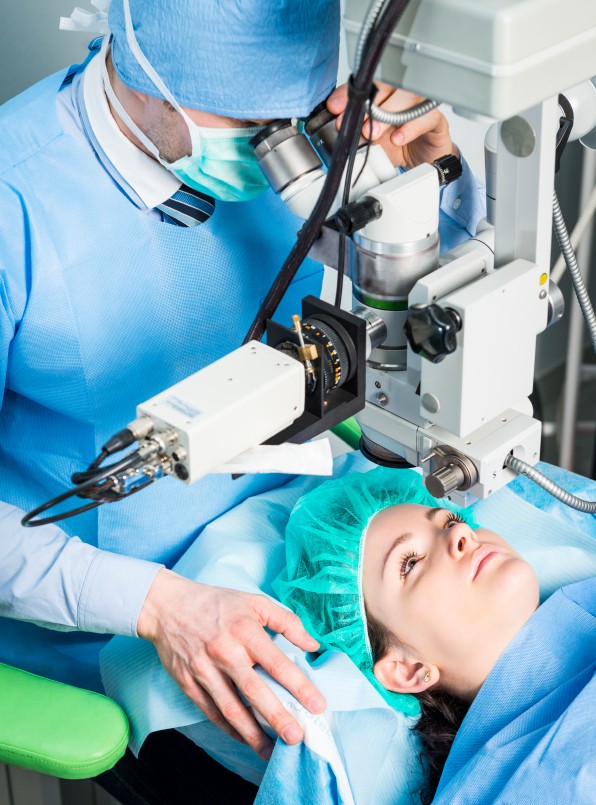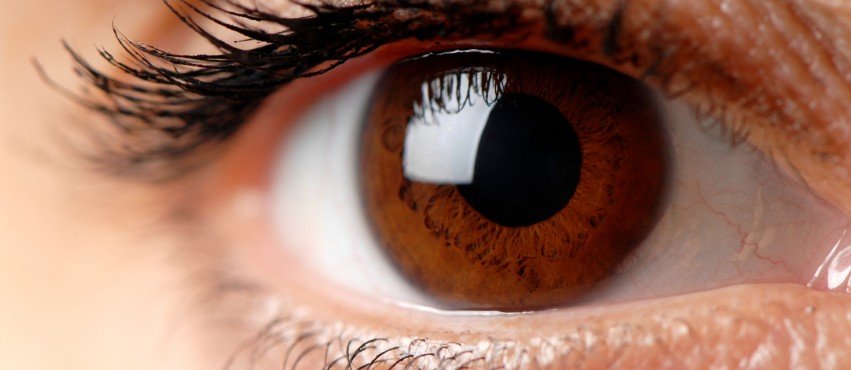This month, a vitreoretinal surgeon gives us an inspiring account of his journey to become an Ophthalmologist. He also provides insight into a typical day, discusses the future of the specialty and shares wisdom on how to make a successful career in Ophthalmology.
Why did you decide to become an Ophthalmologist?
I became interested in medicine whilst still at school, and it was there I was told to “forget it” – I was dyslexic and had mixed success at school. Despite this, after completing a degree in Biology I applied for a medical science degree at St. Andrews and got in anyway. I didn’t enjoy pre-clinical medicine studies because there weren’t any patients, and nothing like the medical dramas I had seen on TV.
Initially, I wanted to do virology but quickly realised that laboratory work could become quite lonesome. Being more of a people person, I decided to look for something else which required more interaction with others.
I was given the opportunity to work in an Ophthalmology ward whilst still a medical student. There, I met a lady in her 70’s who had developed cataracts because of her diabetes. The cataracts had become so dense that she could no longer see. It was as if the lens in one’s camera had become completely frosted over. She had a mortal fear of doctors and hospitals but she had summoned up the courage to come in and had agreed with the surgeon the unusual step of having both eyes done in one go, as both her eyes were equally poorly sighted. She could just about distinguish light and dark and used this to orientate herself in herself in her flat, that is to say, if the window is over there then the door must be about here. She spent her evenings listening to the television and was a fan of soap operas; but like listening to The Archers, she had little idea of what the characters looked like.
I spoke to her before the operation and offered reassurance that the procedure was very straightforward, and she requested that I be involved in the surgery. Having no experience, I was tasked with holding her hand. The procedure lasted just 15 minutes.
After the operation she had bandages on both eyes overnight. They took them off early the next morning and when I arrived, she was not just able to see but was actively ‘looking’ about her and had been studying her hands closely for hours. Some of her grandchildren came in to see her and I recall there was a rather emotional meeting which included the family and nursing staff all crying. I do remember the lady gripping my hands very tightly, looking at me and telling me very earnestly that she couldn’t believe she had allowed her fear to stop her from having the operation years ago. She then asked me if I was going to be an eye surgeon.
We met once more a few weeks later, her whole aspect of life had changed and she was much more independent. She came into the clinic on her own by bus, and when we sat waiting for her to see the eye surgeon she complained that none of the characters in her favorite soap opera looked as she expected. Indeed she found it easier to close her eyes and listen to establish who was on the screen by listening to their voice, than open her eyes and tie the face to the voice. I remember her lamenting that Ken, a handsome young character she remembered from before she couldn’t see, had aged more than expected.
I don’t know what happened to her but I do know that the impact of sight restored on a life and on a family is an honor and a pleasure to behold – and it was after that I knew that a career in Ophthalmology was for me.
Was that the discipline you had originally trained in, or did you transfer from another one?
I started off as a Junior House Officer at Glasgow in colorectal and pancreato-biliary medicine, vascular surgery and plastics. Here I dealt with a lot of very unwell people who sometimes died. Later I moved to Manchester, again as a Junior House Officer, and worked in pancreo-biliary medicine, gastroenterology, cardiology and general medicine that was much of the same.
I then went on to become a Senior House Officer in an Accident & Emergency department in Dublin where I gained experience in good all round adult medicine and surgery. Here I experienced nurses with an excellent holistic approach – very good at triage. They had a sixth sense and could tell when things were going to go south and always seemed to have already been preparing five minutes before being asked to set up for an intervention. It was here that I also learned “the golden hour” – in medicine it is easier to act quickly to prevent things getting “all mucked up” than it is to try and “un-muck” it afterwards.
I’ve seen other doctors move to Ophthalmology from general medicine as they have worked with diabetics who have had eye problems.
What unique attributes are needed to be a top Ophthalmologist?

- Good depth perception to be able to work under a microscope effectively
- Steady hands
- 20-20 vision
- A solid understanding ofmathematics and physics; vectors, the construction of the eye, material densities and curves etc.
- Logical thinking – being able to apply basic medical and scientific knowledge to a specific medical situation
- Understanding the principles (and not just regurgitating the facts) is essential in making the right diagnosis
- You need to be a good teacher – Einstein said: “If you can’t explain it simply, you don’t understand it well enough”
- Experience – I was lucky that I had a lab with lots of pig eyes to practice on!
- The best surgeon knows when NOT to operate
- You must be a good general doctor to be classed as a top specialist – you need all the facts before making decisions
- Expansive, behavioral and analogical based thinking – logical problem solving is often what’s needed for medicine
- The study of statistics is vital in making the right decision and it is important to realise that there is too much low-integrity data out there. Ophthalmologists should use data effectively and record their own too
- Although nanotechnology is not essential, it is the way forward to progress in Ophthalmology in my humble opinion
What are the key challenges in Ophthalmology compared to other specialisms?
Ophthalmology is tough to get in to and is highly competitive due to the perks that come with the role. It is seen as its own medicine almost like dentistry, which can make it harder since its not taught properly or in relation to other areas of medicine.
Often, Ophthalmologists usually understand other areas of medicine, but non-Ophthalmologists don’t always know Ophthalmology, which can be frustrating. “The body is a life support for the eye” – hence it’s vital to know the body. Day to day medicine and basic training isn’t used in this area, so a proactive approach is needed to brush up on this side of the coin.
What do you enjoy about the role most?
- It’s simple and easy to fix eyes in most cases – cataract operations often take just 15 mins. The longest ops on complex retinal scar tissues and/or trauma repair can take several hours.
- Less stressful than other areas of medicine – no-one ever dies and everyone has 2 eyes, so on the rarity it goes wrong then the patient can still see technically!
- Interaction with patients
- Lots of trust – it is a huge honour to be given the role of veto-retinal surgeon
- Standard hours and I am rarely needed on call (unless a penetrating eye injury) unlike in other specialties (perhaps a call every now and again) – so I have a good lifestyle
- The results and outcome of a patient’s happiness in regaining a basic sense is incomparable
- Good rates of pay
- Ophthalmology is a profit making specialty due the impact, speed and value of the work – this makes the management side less stressful
What is an average day like – hours, types of patients, interaction with other members of the team, workload?
- 9-5 style hours
- In my case ladies and gentlemen, often aged 50+, but demographic depends on the type of sub specialism, so it can be a pretty eclectic group
- There is little interaction with other doctors, it is mainly nurses and non-clinical staff
What advice would you give to new doctors who would like to specialise in Ophthalmology?

Medical facts are essential and experience is essential. What isn’t essential is extraneous medical fact and by that I mean you don’t need to know the anatomy of the plantar fascia (of the foot) to know how to assist in an appendectomy.
Conversely, there is no such thing as a “fully trained” doctor or nurse.
The principle of lifelong continuous learning, refinement and improvement should be written through us like a stick of Blackpool rock. If you get to the end of the day and didn’t learn anything, you probably weren’t paying attention – every day is a school day. There are so many areas to cover, even outside of medicine – IT, nano-technology, engineering, mathematics, chemistry, biology, physics, statistics etc. Always push and learn as much as you can – if you’re not passionate, you won’t be a good doctor.
Being a doctor is more than a job, or it should be – when you finish your shift, your attitude shouldn’t be “I’m done for the day”. Your obligation to your patients’ care is 24/7 but is delegated for off hours and holidays. Its your responsibility if the person delegated to doesn’t come through. The clue is in the fact that when you become a doctoryou change your title and not just the nadge you wear at work: like soldiers and clergy it’s not something you do, it’s something you are. I give my mobile number to all of the patients I operate on so they can call me whenever they need.
How would you like to see Ophthalmology changing in the future?
- As a matter of course, Ophthalmologists should pass on their knowledge to the whole team, focusing on non-clinical and nursing staff
- There should be more nurse practitioners in Ophthalmology. The principles behind it don’t need 7 years’ medical training – experience and practice is far more important than medical facts, although both are important.
- Medical facts are essential and experience is essential. What isn’t essential is extraneous medical fact and by that I mean you don’t need to know the anatomy of the plantar fascia (of the foot) to know how to assist in an appendectomy, for example.
- Nurses should be more involved with the surgery itself and have the knowledge and experience to understand why the surgeon/doctor is doing something as opposed to just “what”. I am currently writing suggestions for a course that will allow the whole department to understand each other’s roles from a medical perspective. I feel that this will improve the efficiency and quality of the service
- More teaching in this field is needed as the basics are often missed
- Cross-training between industries is essential – there might be a technology used in other industry that can be applied to medicine, but the knowledge sharing isn’t always there, so progress is slower to implement these new technologies

